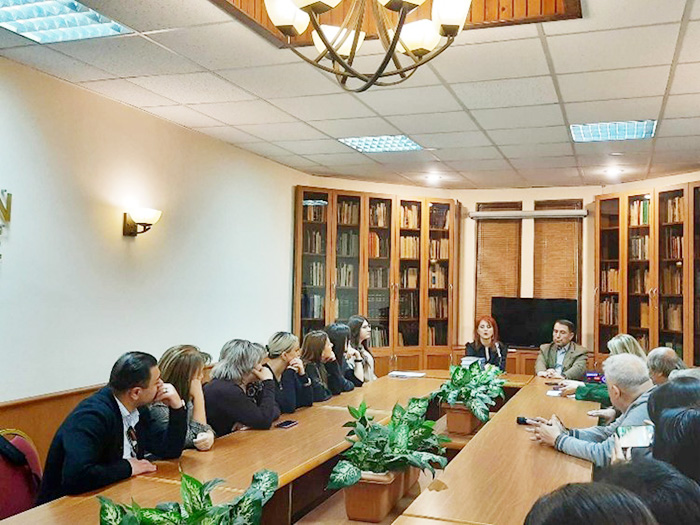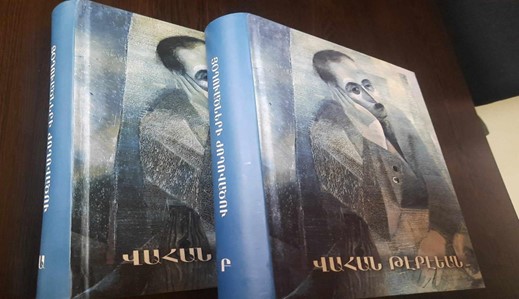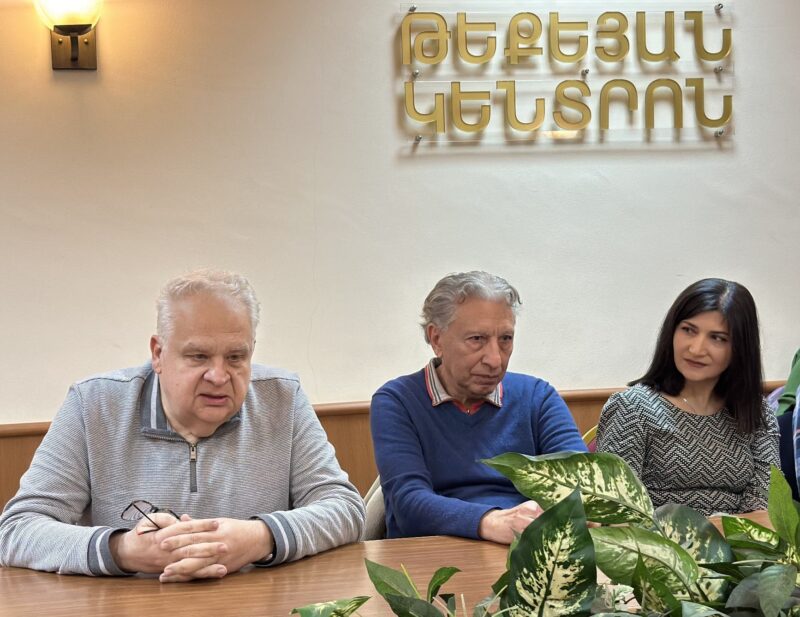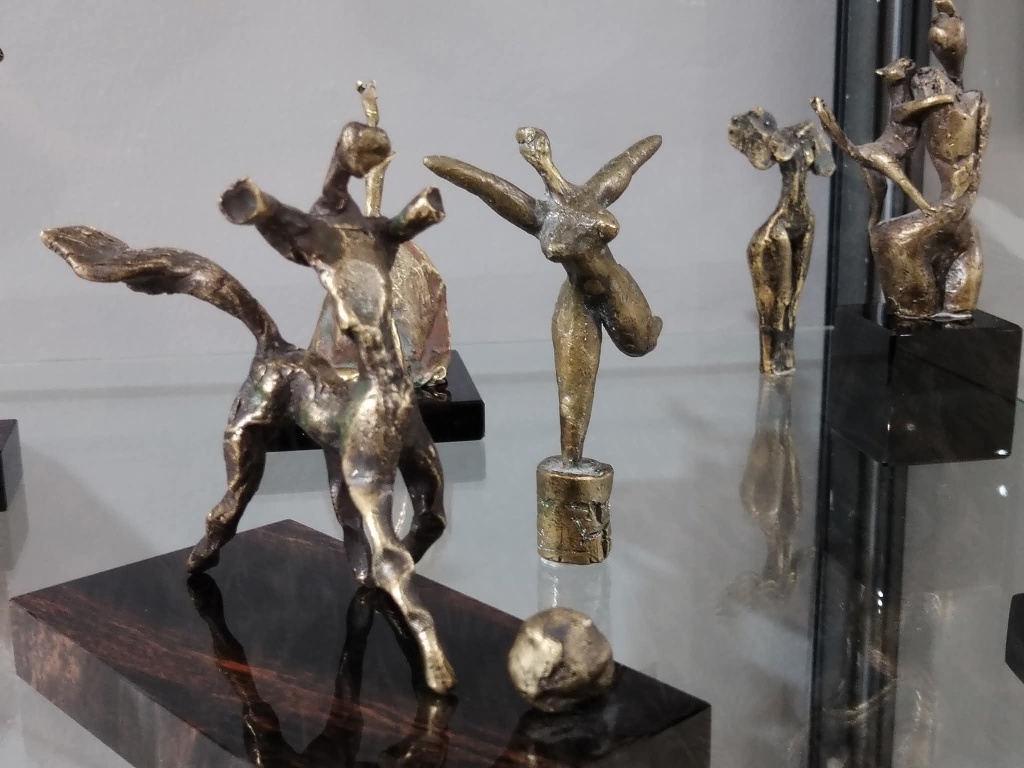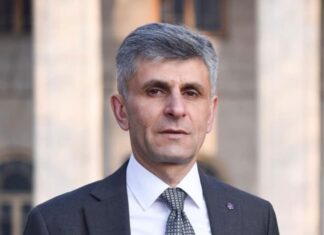By Kristine Melkonyan
YEREVAN —The presentation of the second volume of the three-volume collection of the works of Vahan Tekeyan took place at the Tekeyan Center in Yerevan. The author of the book, Varduhi Davtyan, is a candidate of philological sciences and associate professor. Through these volumes, the reader discovers the poet, prose writer, teacher, and public figure Vahan Tekeyan anew as a skilled writer on public issues and editor.
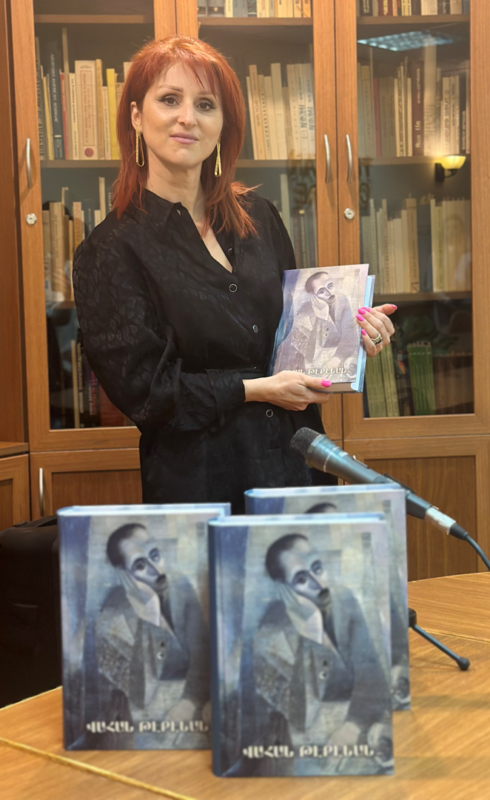
Both volumes of the book were published with the support of the Tekeyan Center Fund. In the second volume, Tekeyan’s articles which were written and published in the press in the 1911-1920 period are presented (the first volume covers the years 1901-1910). This is the first time that articles collected from different periodicals are presented to the reader in separate volumes, in chronological order. These writings reveal the path of struggle of the Armenian people, the search for existence, the efforts made for national salvation, and the evaluation of Armenian and world literary and cultural values.
Tekeyan’s vast literary legacy until now had remained scattered among the pages of newspapers and periodicals like Lusaper, Arev, Zhamanag, Hayrenik, Shirag, Piuzantion, Vostan, Husaper, Zhoghovurti tzayn of Constantinople and abroad. Tekeyan appeared in the press with signed and sometimes unsigned articles. Through his enthusiasm for writing articles and his productive editorial leadership, he gave a new, fresh and varied content to these newspapers. The compiler of this volume notes that the unsigned editorials which were published on the second page of Zhoghovurti tzayn, were subjected to the strict censorship of the time. They were sometimes partially and sometimes completely deleted by the censors and became the subject of debates.
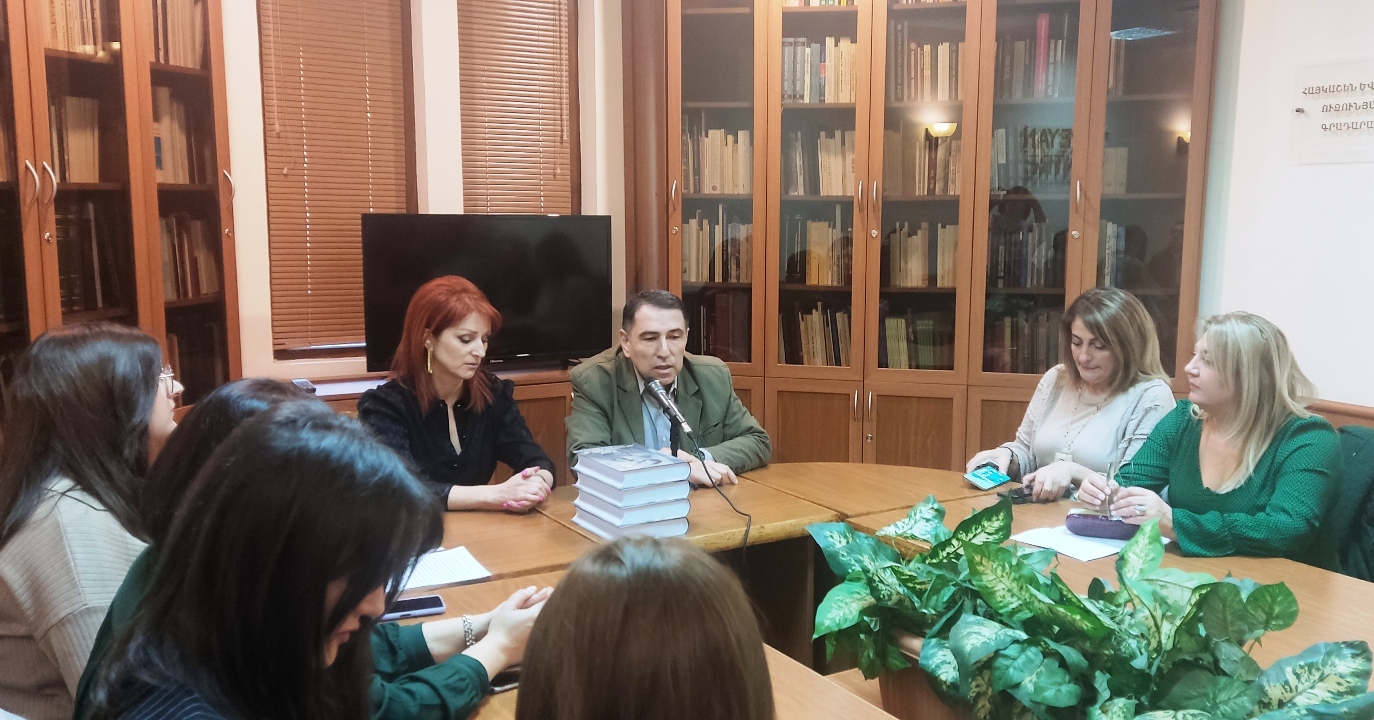
According to the author, Tekeyan’s articles are like a dialogue with the reader about the problems of his time. “Broadminded Vahan Tekeyan was more than frank with his reader. He considers the strengthening material and moral relations between the newspaper and the reader to be a ‘trade,’ a moral trade with the responsibility of returning the power taken from the reader to the reader again, with the ‘interest’ of exchanging spirit, direction, and idea with sympathy.”
The director of the Tekeyan Center, Armen Tsulikyan, emphasized the importance of the three-volume publication and assured that Tekeyan’s discourse is surprisingly contemporary, as if it were written today. “The greatness of Vahan Tekeyan and other notables lies in this,” he said. Tsulikyan thanked Varduhi Davtyan for bringing the idea to life and for the enormous work, and expressed the hope that all Tekeyan-loving readers will not have to wait long for the third volume.
